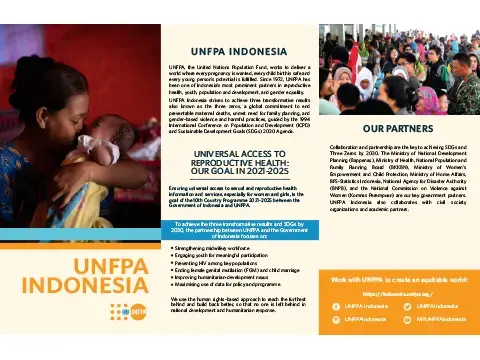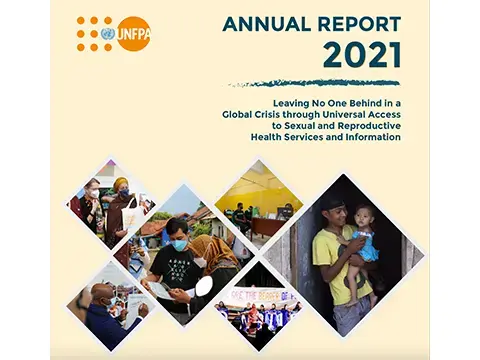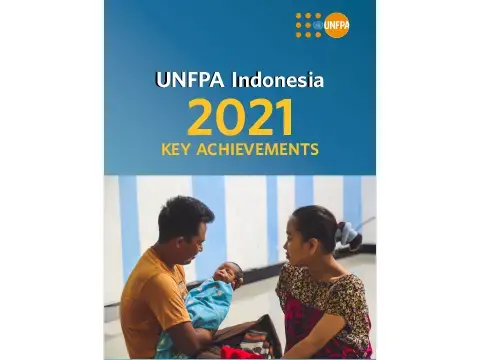Jakarta, 27 November 2012— Religious leaders are uniquely positioned to protect the dignity and rights of young people by discouraging early marriage, UNFPA Representative in Indonesia Jose Ferraris said today during the National Dialogue on Government and Religious Leaders’ Perspectives on Early Marriage. The event, held at the National Gallery in Jakarta, was co-organized by UNFPA and the Women’s Health Foundation (Yayasan Kesehatan Perempuan, or “YKP”).
Ferraris called on policymakers and religious leaders to set and enforce marriage age minimums, and to discuss other concrete steps they might take toward ending a practice that endangers the health, education, and welfare of young women in Indonesia.
This year marked the first annual International Day of the Girl Child, observed 11 October. UNFPA recognized the event by launching the campaign and report, “Marrying too Young: End Child Marriage.”
Worldwide, it is estimated that one out of every seven girls is married before the age of fifteen. In Indonesia, 22% of women entered marriage before age 18, according to the 2007 Demographic and Health Survey. Indonesia’s Child Protection Law defines childhood as extending up to 18 years of age.
According to the UNFPA report, early marriage leads to the initiation of sexual activity during a period when girls know little about their bodies, their sexual and reproductive health, and their right to family planning. “In Indonesia, sexual and reproductive health education is scarce,” said Ferraris. “This leaves young women ill-prepared to enter adulthood, much less marriage or childrearing.”
Mr. Ferraris recommended “improved access to sexual and reproductive health, as well as information centers that raise awareness about the dangers of early marriage and early pregnancy,” as measures that “can mitigate some of the worst effects of this problem.”
Young wives are more likely to have early and closely-spaced pregnancies, posing serious health risks. Complications from pregnancy are the leading cause of death for girls between 15 and 19 years old, worldwide, according to UNFPA.
“These consequences do not end when children reach adulthood, but follow them throughout their lives,” Ferraris underscored, citing lack of education and economic independence, increased risk of domestic violence, and barriers to accessing justice and legal protection.
Ferraris praised advocacy efforts of the Women’s Health Foundation to end early marriage. The organization’s chairperson, Zumrotin Susilo, stated in her remarks that early marriage violates the rights of children and young people. “While they are supposed to be under the protection of their parents, they are being tied in wedlock instead,” Susilo said. “They lose their rights, such as the right to play around, due to getting married. It then causes pressures and psychological effects.”
Susilo urged government to revise the 1974 Marriage Act, which sets the minimum marriage age for girls at 16 years old. This law stands in conflict with the 2002 National Child Protection Act, which sets the bar at 18 years old.
UNICEF Representative in Indonesia Angela Kearney’s remarks highlighted early marriage’s disruptive on girls’ education, leaving them vulnerable to abuse and ill health. “Education is one of the best means of protection,” Kearney said. “We must do all our part to let girls be girls, not brides.”
Heru Kasidi, Staff Expert for International Cooperation at the Ministry of Women’s Empowerment and Child Protection, encouraged government officials and religious leaders to develop problem-solving action plans that accommodate the voices of young people. His remarks officially opened the event.
Amin Said Husni, Regent of Bondowoso, East Java, delivered the event’s keynote remarks. Mr. Husni offered his experiences addressing the high incidence of early marriage in his regency through a Government Action Plan.
Nurul Indriyani, Indonesia Girl Ambassador to the UN Assembly on Girl Child, also spoke about her experience educating peers on early marriage in East Java’s Grobokan District.
A panel presentation by Lies Marcoes, Ninuk Widyantoro, Fathurroman Alfa Ali (Gus Fat), and Kartono Mohamad, followed the event’s robust line up of preliminary remarks. The panelists spoke on early marriage from religious, health, social, political, and gender perspectives. A subsequent “sharing session” allowed various organizations an opportunity to offer their thoughts on preventing early marriage.
Discussion among the present religious, government, and NGO leaders yielded several recommendations: increasing the minimum marriage age, creating a “comprehensive infrastructure, as well as monitoring and evaluation mechanisms, to support and measure the progress of action plans,” and incorporating reproductive health into school curriculums.
Tags: Young People, Reproductive Health




